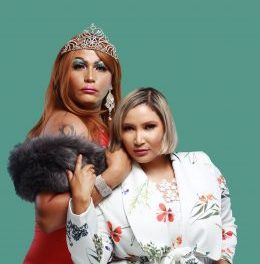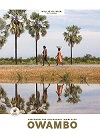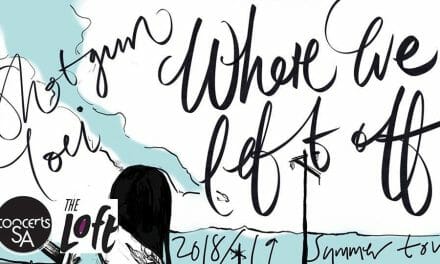
Joburg Film Festival an eye opener for local filmmaker

The notion that creatives are not professionals and are fly-by-nights has led to the belittlement of the industry, said filmmaker and first-time participant at the Joburg Film Festival, Othillia Tutu Mungoba.
Mungoba said she thought that a film festival is just about the watching and reviewing of movies/features is such a misconception because the Joburg Film Festival was a twist in the plot offering an ensemble of a networking session, industry panel discussions, best practices exchange and a line up of assortment and top-class productions to watch.
“As an emerging filmmaker, this ‘first time’ was insightful and has set the tone for my storytelling and production career and it allowed me to reflect on the lessons learned from attending sessions addressing the integration of animation in film, the business of filming, telling the African narratives and the importance of collaboration,” she added.
She further explained that the notion that creatives are fly-by-nights is a misconception led by some creatives who prefer the easy route out and neglect the thorough and sometimes painstaking commitment that is required in the presentation of their work.
She urged that this misconception be put to bed. “Creatives need to have honest conversations with themselves that indeed, not all of us put our concepts onto paper, and we should learn and explore collaborative efforts between ourselves, project managers, producers, and professionals who can harness their visions into presentable and bankable concepts,” she said.
Referencing this year’s festival theme, ‘Our Stories, Our Gold’, Mungoba said it is high time that storytellers acknowledge that their stories carry generational wealth and can fortitude who people are. “Namibian stories form part of the African narrative, mimicking the west and foreign forms of storytelling dilute our identity, even though, we should not overlook other methodologies or doctrines that we have been exposed to, we should add our own ‘kapana spice’ on the narrative fillet,” she emphasised.
Mungoba narrated that there is a saying in the production and film sector, ‘You are as strong as your weakest link’, therefore creatives need to leverage their strong traits and conduct open, vulnerable conversations to see their creative ideas flourish, even if it means handing over a project to another creative who has a technical and monetary upper hand.
“The latter should be fairly remunerated and justly protected and we need to copyright or patent our works. This can only happen with creatives seeing their ideas as investable business concepts that go beyond our noses but can provide for our families when we are long gone,” she urged.
Mungoba said she enjoyed the opportunities available for content developers, and the vast possibilities presented by the digital space and streaming platforms, and one of the many advantages presented by the COVID-19 pandemic was the demand for content viewing on digital platforms and catalog viewing options.
She also mentioned that numerous production houses and broadcasters have put in the call for series, features, and documentaries, and are willing to pay top dollar for quality content for both online and terrestrial views. “The doors of MultiChoice Namibia (MCN) and Namibia Film Commission (NFC) are open to provide insight and guidance on these opportunities on sister channels and film associations,” she said.
“I have always viewed creatives as mediums of messages to the world, we provide insight and at times, a better understanding of the world’s delights and tribulations, but we are not immune to the anxieties of the world, and, because of this mental wellness in the arts is plagued with fellow creatives falling prey to substance and drug abuse and at times, suicide,” emphasised Mungoba.
Highlighting that even though many institutions are providing mental wellness and psychological support, she said it cannot be overlooked that the establishment of places of safety for those who serve the creative arts fraternity is needed, and how there are no platforms that address the hurdles and occupational blockages women continue to face from their male counterparts as they take up space in the promotion and functionality of the fraternity.
“I would like to express sincere appreciation to the NFC and MCN who made this adventure of insight and validation as a Namibian storyteller a reality, and under the auspices of NFC, I look forward to myself and Ndakalako Shilongo’s assignment to the establishment of our country’s won chapter of Sisters Working in Film and Television (SEIFT) and raise the Namibian flag high,” she concluded.













































